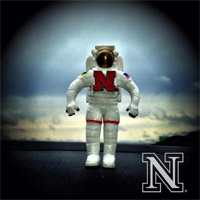Law, College of

Space, Cyber, and Telecommunications Law Program: Faculty Publications
Date of this Version
6-2018
Citation
Biological Theory 13:2 (June 2018), pp. 142–151.
doi: 10.1007/s13752-017-0271-9
Abstract
The impending missions to exploit natural resources of celestial bodies may at some point start interfering with the scientific interests, including those of astrobiology, in these bodies. While the legal status of celestial bodies at the highest level is clear, uncertainty has arisen as to the extent private property rights over such objects or over their resources are legally acceptable, legally impossible, or potentially legal. This also provides for a considerable amount of uncertainty regarding how the legal framework could or may need to be changed to accommodate private interests. The article analyzes the two main international treaties relevant from this perspective, as well as their backgrounds, in order to outline the current legal status of celestial bodies and the resulting legal rights and obligations pertinent to both private exploitation and exploration. Based on such an analysis, it concludes by highlighting an approach that could actually incentivize the private sector and the science community to work together in a manner conducive to their interests in exploitation and exploration respectively.
Included in
Air and Space Law Commons, Comparative and Foreign Law Commons, International Law Commons, Military, War, and Peace Commons, National Security Law Commons, Science and Technology Law Commons


Comments
Copyright © 2017 Konrad Lorenz Institute for Evolution and Cognition Research; published by Springer. Used by permission.